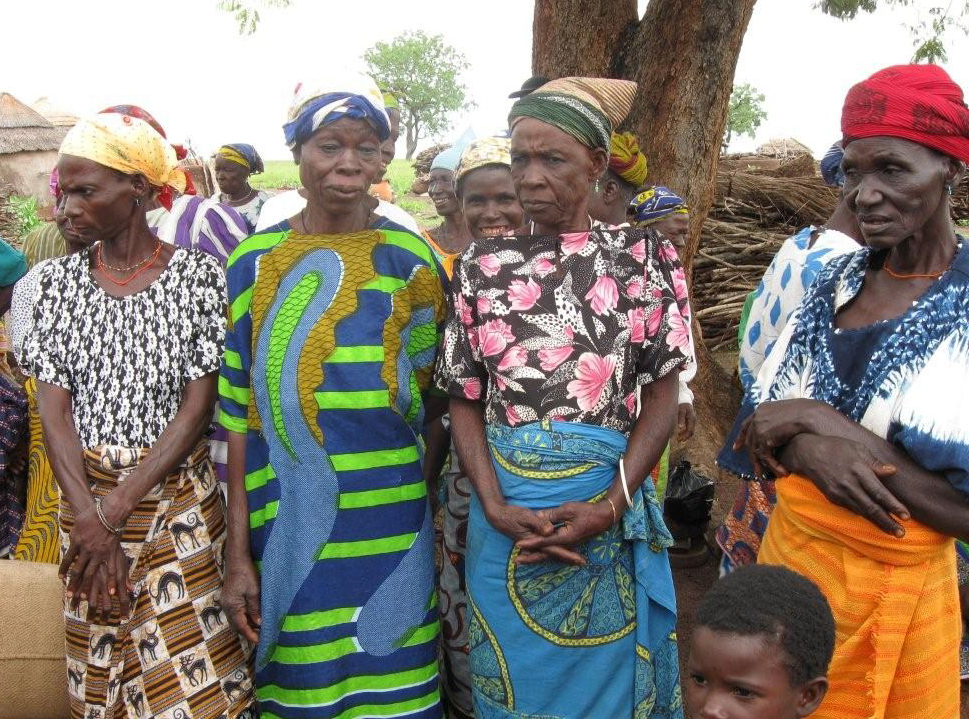Ghana’s government is looking at ways to support people accused of witchcraft - mainly women and children banished by their communities to “witches’ camps” in the north - and to reintegrate them in their home villages.
Currently around 1,000 women and 700 children are living in six camps in northern Ghana, where they have found refuge from threats and violence from people in their home communities after being labelled witches and blamed for causing misfortune to others. In most cases the residents were taken to the camps by family members. A small number of men are also banished to the camps as “wizards”, according to Hajia Hawawu Boya Gariba, Ghana’s deputy minister for women and children’s affairs.
Belief in witchcraft is widespread in Africa - and other parts of the world - but in sub-Saharan Africa accusations against children are a recent and growing phenomena, according to a UN Children’s Fund (UNICEF) report released last year.
The camps are located in remote areas and the residents usually live in basic conditions in mud huts without electricity, with limited access to food, water or medicine. Local reports detail women going hungry, residents having to walk kilometres to collect water, and children being unable to attend school. The camps are run by managers - usually the people who founded them - who rely on funding from NGOs and private donations to operate the facilities. Sometimes camp managers also take payment such as food from residents.
While the issue of “witches’ camps” is nothing new - they have been around for decades - recent media reports have spurred the government to action. “As a government we are embarrassed that we have these camps in our country - especially as our human rights record will be scrutinized as far as this is concerned,” Gariba said.
Stigma
A meeting of government officials, accused women from the camps, camp managers, NGOs and doctors in Accra on 8 September considered what action should be taken to improve the situation for camp residents. Gariba said the government was working with the National Disaster Management Organization (NADMO) to improve conditions in the camps by providing food and other support to the inmates, then in the long-term the government would look at repatriating the residents to their home villages and shutting down the camps.
This will include educating communities back home so they understand the banished women are not actually witches, said Gariba, who has also suggested drafting legislation to make it illegal to accuse people of witchcraft.
Akwasi Osei, the chief psychiatrist in Ghana’s national health service, who helped initiate the meeting, emphasized the need for community education. “Right now if you [repatriate accused witches] you can be sure they will be lynched when they go back home,” he said. “You have to prepare [their] society and help them understand that it’s not these women who were the causes of [misfortune].”
A second meeting later this month will firm up a plan of action to eventually disband the camps, Gariba said.
Reluctant to leave
Not everyone thinks trying to close the camps is a good idea. Bilabim Jakper, 60, has lived in the Nabuli “witches’ camp”, Gushegu District, northern Ghana, for the past nine years and says she wants to stay put.
Her husband died 15 years ago, and after that her former husband’s younger brother accused her of witchcraft. “He told family members I attempted to kill him spiritually in the night… Later the whole village heard about the incident and concluded I was a witch. They beat me up and threatened to kill me.”
She escaped and eventually found her way to Nabuli. She said she does not believe her original community would accept her back. “They say I am a bad omen to my family. Here is my home… The people here are my friends and relatives now.”
Alhassan Sayibu, who has managed the Nyani “witches’ camp” in northern Ghana for 10 years since taking over from his father, said the risk of violence against so-called witches and wizards in their original communities was too high and the camps should not be closed.
“If something bad happens they [could] be accused [again]. Three months ago [people in one community] broke someone’s hand after she was sent back there and she was brought back here again. Even men are beaten and returned here,” Syibu said.
Gariba suggested if some inmates were still unable to return after their original communities were educated, the camps could be redeveloped into care centres.
Who are the accused?
Chief psychiatrist Osei said women accused of witchcraft are generally mentally ill - suffering depression, dementia or schizophrenia. Women were also usually easy targets when people were looking for a scapegoat, he said. “Very often [accused witches are] vulnerable women who are probably widowed or childless… or are poor and illiterate,” he said.
Emmanuel Dobson, executive director of Christian Outreach Fellowship, an NGO providing food, medicine and accommodation to people in the witches’ camps, agreed that mainly older, uneducated women were targeted. He also pointed to the patriarchal culture in northern Ghana as a factor in their vulnerability. “When a man marries a woman she becomes his property. The woman’s family then has less authority over the life of the woman, and the woman is left helpless [if] her husband is not able to advocate for her.”
sda/wb/aj/cb
This article was produced by IRIN News while it was part of the United Nations Office for the Coordination of Humanitarian Affairs. Please send queries on copyright or liability to the UN. For more information: https://shop.un.org/rights-permissions



